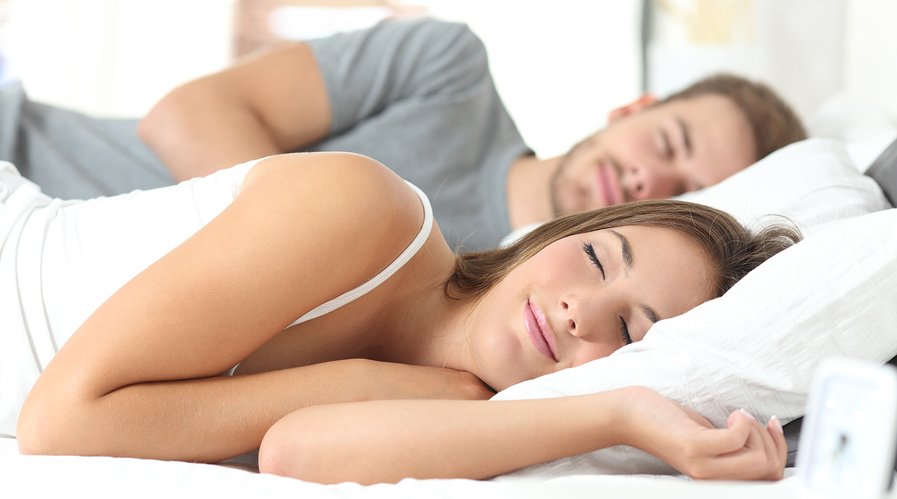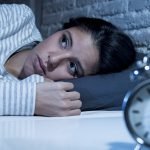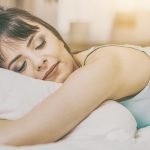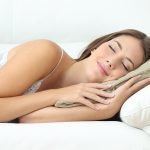If you’re like most people, you spend much of your day yawning and trying to improve your focus with pick-me-ups like caffeine. It’s no secret that the root cause of your problem is very likely a lack of sleep. In fact, nearly 35 percent of American adults don’t get the minimum seven hours of slumber nightly that is recommended for health and safety according to a 2016 CDC report.1 Liu, Yong; et al. “Prevalence of Healthy Sleep Duration Among Adults—United States, 2014.” Centers for Disease Control and Prevention. 19 February 2016. Accessed 3 February 2017. http://www.cdc.gov/mmwr/volumes/65/wr/mm6506a1.htm. But there may be a solution that doesn’t require you taking a pill or counting hundreds of sheep. New research suggests that getting a better night’s sleep may be as easy as going outside.
The study, which was conducted at the University of Colorado Boulder, found that being outdoors in natural light appears to affect our internal clocks and regulate the hormones that help us sleep more soundly.2 Stothard, Ellen R.; et al. “Circadian Entrainment to the Natural Light-Dark Cycle Across Seasons and the Weekend.” Current Biology. 2 February 2017. Accessed 3 February 2017. http://www.cell.com/current-biology/abstract/S0960-9822(16)31522-6. Our circadian rhythms, the biological mechanisms that tell us when to wake and when to sleep, are set on a 24-hour cycle that is greatly influenced by light and darkness. However, nowadays most of us work indoors, spending our days in artificial lighting, then come home when it’s dark out to be exposed to more artificial lighting.
What’s more, the problem is exacerbated by the time we sit in front of a screen—be it a phone, computer, or television—because they emit blue/green light. Blue/green lightwaves are at their strongest in nature in the morning, and as the day goes on the emphasis shifts to the red/orange end of the spectrum. Since the blue/green light is naturally associated with waking in our bodies, it has been shown in numerous studies to disrupt our sleep.
The present research focused on a group of subjects camping for a week in December in the Colorado Rockies. Levels of melatonin, the hormone that increases at night to help us fall asleep, were measured through saliva samples and compared with samples taken during a control week at home. During camping, the melatonin began to kick in more than two-and-a-half hours earlier than it did when the participants were home. They went to sleep earlier, and averaged more than two hours longer of sleep per night!
A variation of the trial compared a weekend of summer camping with a weekend at home. Even just a couple of days outdoors reset the volunteers’ circadian rhythms. But those at home stayed up even later than they would on a weeknight, producing a greater discrepancy.
It does need to be noted that both experiments used very small subject pools. And it’s not entirely clear how much of the outcomes were due to simply being outdoors versus not using any devices with lit screens at night. But it might be well worth your while to make both of these adjustments to benefit your ability to sleep.
What if you’re not the camping type? No worries, the important part is just getting outside. Ideally, you should strive to spend 30 to 60 minutes outdoors in the sunlight every day. This can boost your mood, help you produce enough vitamin D, and whip your circadian rhythm back into shape, all in one fell swoop. In the best-case scenario, you can get in a workout while outside. But even if you can’t, just make it outdoors for a quick stroll or a half-hour break at lunchtime to eat in a nearby park.
And make sure to limit your screen time at night as well. You don’t want your outdoor time to go to waste by messing up your circadian rhythms every evening. Give yourself a cut-off point at which you can’t use any devices that’s at least an hour before bed—and stick to it! There are many other ways to entertain yourself, like reading a book, playing cards or board games, and having a face to face conversation with actual people. And if the weather permits, it wouldn’t hurt to go outdoors in the dark either, further helping your internal clock remember that it’s almost time to get some sleep.
And if all else fails, you might want to consider taking some time released, supplemental melatonin before bed—to help re-establish your night-time hormonal balance.
References
| ↑1 | Liu, Yong; et al. “Prevalence of Healthy Sleep Duration Among Adults—United States, 2014.” Centers for Disease Control and Prevention. 19 February 2016. Accessed 3 February 2017. http://www.cdc.gov/mmwr/volumes/65/wr/mm6506a1.htm. |
|---|---|
| ↑2 | Stothard, Ellen R.; et al. “Circadian Entrainment to the Natural Light-Dark Cycle Across Seasons and the Weekend.” Current Biology. 2 February 2017. Accessed 3 February 2017. http://www.cell.com/current-biology/abstract/S0960-9822(16)31522-6. |











